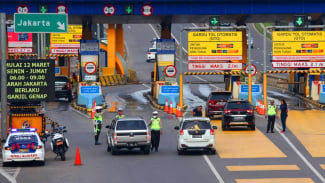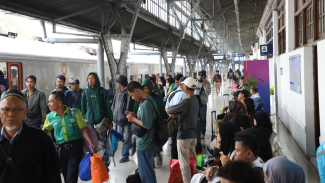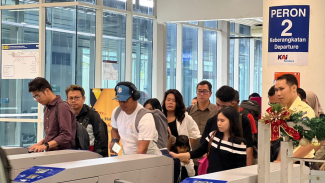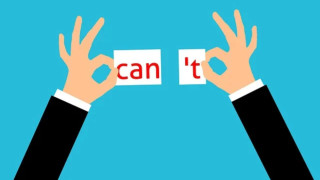VIVAnews - Since Indonesia adopted a parliamentary form of government back in November 1945, the country has always been preoccupied with tensions between the government and the political parties. As a result, the country's development had been neglected and the state's economy suffered a major setback.
The increasing disorder in Indonesia due to political strife in the parliament gave Soekarno the opportunity to intervene more in the country's political life. Soekarno, who was resentful of his circumscribed position as figurehead president, began to crave for more power thus reducing the power of the parliament.
In 1955, Soekarno secured supports from the military and the Indonesian Communist Party (PKI) in his power struggle with the parliament. A year later, with the military and the PKI on his back, Soekarno began his war against the parliament by heavily criticizing the political parties.
After successfully forcing the parliament to take up a defensive position, on 21 February 1957, Soekarno introduced a new political system which he dubbed “Demokrasi Terpimpin” (Guided Democracy).
He introduced the concept in a meeting with the country's political and community leaders. In his speech entitled “Konsepsi Presiden” ("the President's Conception"), Soekarno spoke about his ideal form of the Indonesian government.
According to Soekarno, the Western-style democracy was not suitable for Indonesia, thus he called for a new system called Guided Democracy which was based on traditional Indonesian principles. He proposed a government based not only on political parties but also on “functional groups” (golongan fungsional) composed of the country's basic elements.
For the purpose of this new system of governance, Soekarno wanted to form a cooperative ('gotong-royong') cabinet representing all the political parties and civic organizations in the country. He dubbed the new cabinet “Kabinet Kaki Empat” ("Four-Legged Cabinet") since it will comprise four constituents, namely PNI (Indonesian National Party), Masyumi, Nahdhatul Ulama (NU), and PKI.
Despite opposition from most of the political parties, Soekarno went ahead with his intention to change the country's governance system from parliamentary to Guided Democracy.
In order to crush the opposition of the political parties and the parliament, on 14 March 1957, Soekarno imposed martial law and reintroduced press censorship. From then on, as most of the power now rested on Soekarno, his government became more and more authoritarian.
This situation lasted nearly a decade, until the communist rebellion in late 1965 forced Soekarno to surrender his executive power to General Soeharto in early March 1966.


















